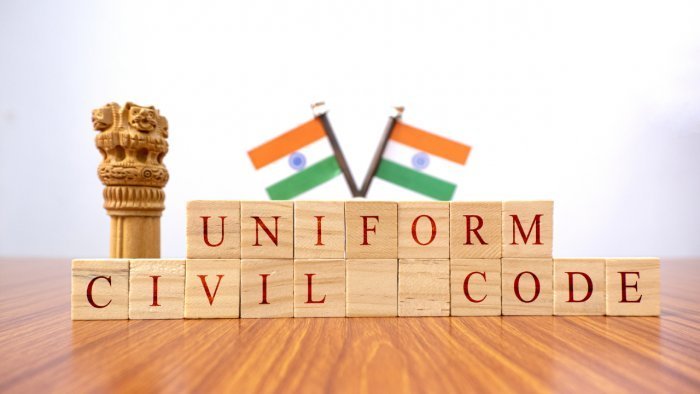
The debate surrounding a Uniform Civil Code has gained momentum once again, with the 22nd Law Commission of India seeking views on the same. Yet again, a series of prejudices, doubts, and political mudslinging has erupted. The politicians, scholars, as well as clerics opposing the same are vociferously expressing their concerns about the motives behind such a code, given the Hindu nationalist image of the ruling government at the Centre and its long-standing agenda on the manifesto.
The political opposition contends that the UCC is being used as a tool to dilute the secular spirit of the Constitution and the social fabric. However, the scholarly sections oppose it from an anti-majoritarian perspective, raising doubts over the democratic credentials of the same, and its ability to address concerns of varied sections of society.
Read | UCC: Law Commission receives over 50 lakh responses
Amidst all these doubts, prejudices, and speculations, what often goes amiss is the fact that apart from minor variations, most of the codified personal laws as they stand today are substantially the same on matters of rights arising out of matrimony, succession, guardianship, and adoption. For instance, the Hindu, Parsi, and Christian laws all provide for the right to seek divorce for both parties to a marriage. They also provide for monogamy as a rule and equal inheritance rights to males and females. Adding to these, the Special Marriage Act also upholds the same principles.
On those issues where a concerned personal law is not codified or, if codified, gender bias or discrimination persist, the Supreme Court of India has stepped in and left no room for injustice to prevail out of such inequality. To name a few landmark decisions where the Apex court has itself expressed a need to have a common civil code are: the Sarla Mudgal case on bigamy after conversion, John Vallamattom on restrictions on the donation of property under the Indian Succession Act, the Shabnam Hashmi case allowing adoption by Muslims under Juvenile Justice (Care and Protection) Act, and the recent Shayara Bano case against triple talaaq. No matter the legislative attempts to undo its objective, the Shah Bano Begum case on maintenance beyond the iddat period is a significant and the first among all of the above cases on this question.
In all of these cases, the Court rendered justice either keeping religious principles aside or reading religious principles in line with the principle of equality and non-discrimination, upholding the significance of a uniform civil code.
Certain questions need to be answered with thorough introspection, beyond politics. If we truly understand the ever-evolving nature of society, can we expect the courts to render justice strictly upholding religious principles or laws, even when they are apparently biased or discriminatory? Has it happened in the past?
Further, how and why should the rights accrued to one person be different from another placed in a similar situation? Will the religious identity or practice of a faith be really under attack if all people, men/women, and sexual minorities get equal rights in matrimony and inheritance? Ideally no. If what is purely religious is separated from what is purely legal, the religious faith and identity will not be under attack. And that is what an ideal UCC is expected to be like.
Whether the skeptics agree or not, we are progressing towards an inclusive society: the apex court has already recognised the rights of sexual minorities and women where they were lacking. Decisions like Joseph Shine v Union of India have paved the way for decolonising statutory provisions and bringing women out of the traditional conception of a husband’s property, and the quest for recognition of marital and inheritance rights to sexual minorities is going for long.
A UCC in this context is not just to be seen as a tool to eliminate discrimination and inequality across communities but also within communities inter se. Therefore, a UCC can be seen not just as a common legal framework on rights, liabilities, and remedies but also a common value base providing the foundation for equality and inclusiveness for the generations to come.
(The writer is Asst Professor, School of Law, Christ (Deemed to be University), Bengaluru)
Deccan Herald News now on Telegram - Click here to subscribe
Follow us on Facebook | Twitter | Dailymotion | YouTube















